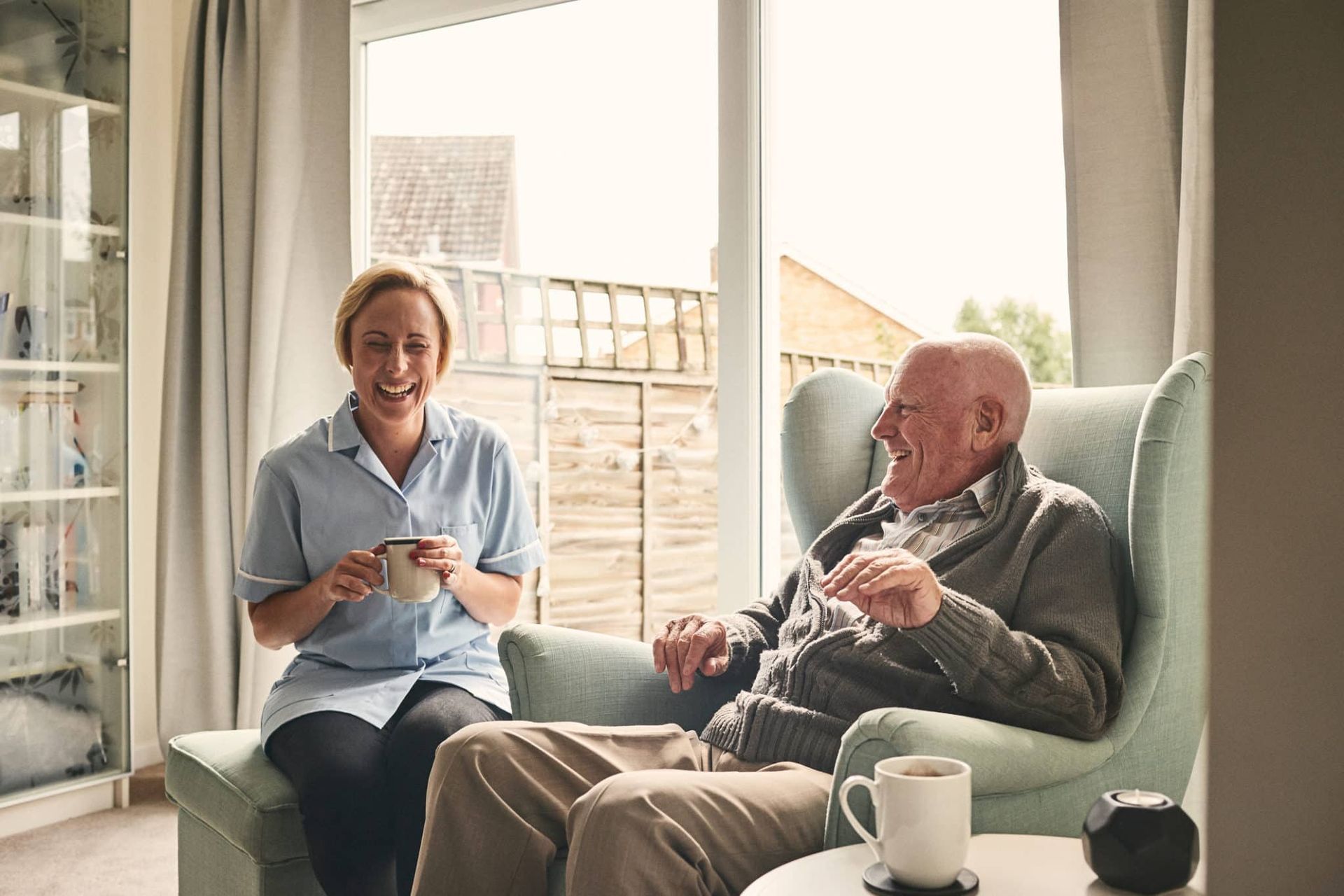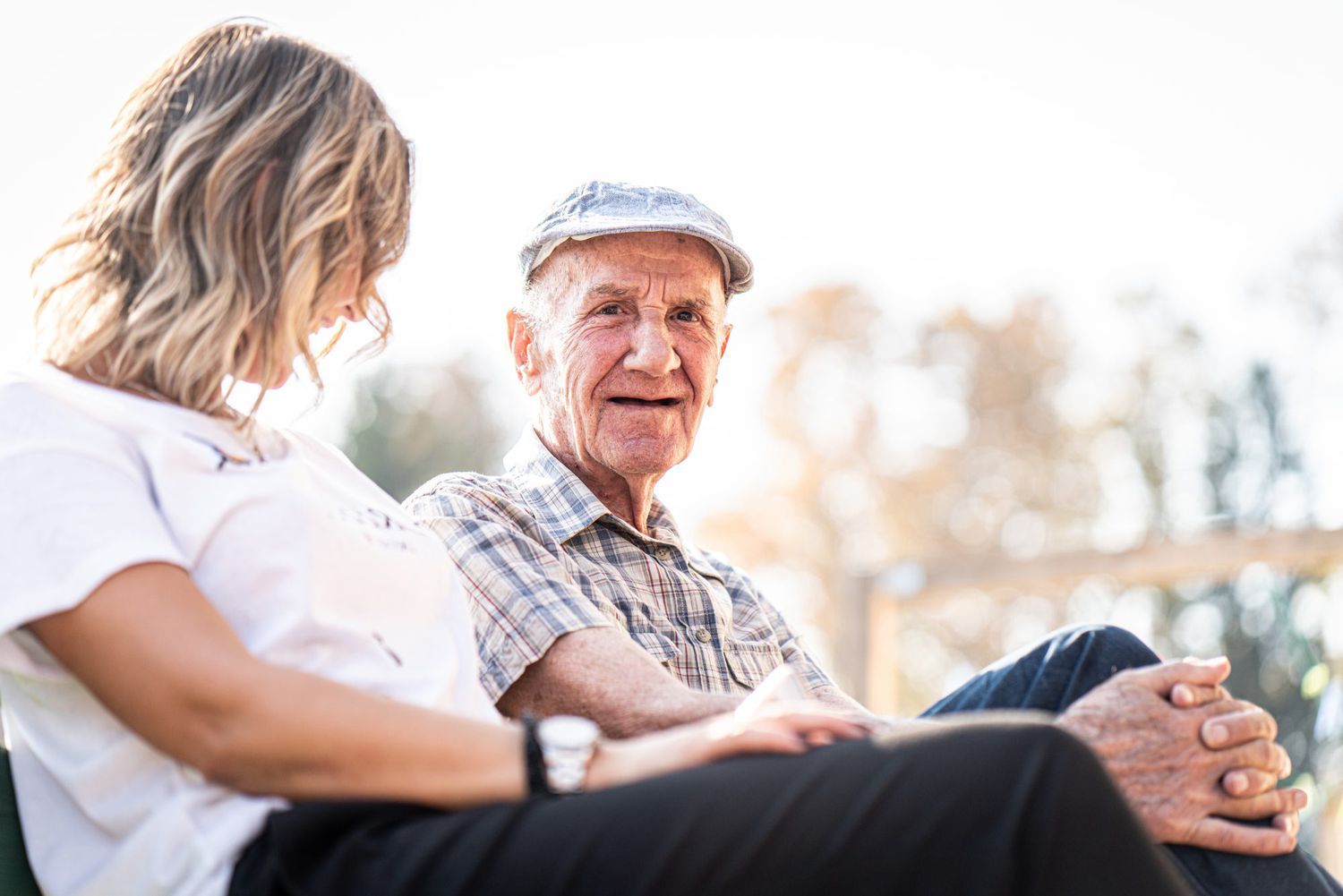10 Signs It’s Time to Consider In-Home Senior Care
A Complete Guide to Recognizing When Your Loved One Needs Support

Introduction to Recognizing the Need for Care
As loved ones grow older, families are often faced with difficult decisions about how best to support their continued independence while ensuring their safety and well-being. These conversations are rarely easy because the aging process tends to unfold gradually. What starts as a few small inconveniences can turn into significant barriers to daily living over time. In many cases, families struggle with knowing exactly when it is appropriate to consider in-home care, especially when seniors are determined to maintain their autonomy for as long as possible.
The reality is that recognizing the signs of when help is needed is not always as straightforward as people might expect. The line between aging gracefully and needing assistance can sometimes feel blurred. Minor lapses in memory, skipped household chores, or unexplained weight loss may not seem serious on their own, but together they can form a picture that suggests a senior is beginning to struggle more than they are letting on. When these patterns start emerging, it is often a signal that non-medical home care could greatly improve their quality of life.
Choosing in-home care is not about taking away independence. In fact, it often has the opposite effect. Professional caregivers are there to provide support in the areas that have become most challenging, allowing seniors to maintain control over the aspects of their lives that are still within their ability. This type of care is designed to complement a senior’s capabilities, not replace them. When done correctly, it ensures that they can continue living comfortably at home without compromising safety or dignity.
By understanding the most common indicators that suggest the need for assistance, families in Boca Raton can be proactive rather than reactive. Addressing these issues early not only protects a senior’s health and safety but also prevents situations where families are forced to make decisions during times of crisis. Knowing what to look for empowers families to make thoughtful, compassionate choices that honor their loved one’s preferences while ensuring they receive the right support at the right time.
Declining Personal Hygiene and Grooming
A noticeable change in personal hygiene is often one of the earliest and clearest signs that a senior is beginning to have trouble managing day-to-day tasks. Family members might observe that their loved one appears disheveled, wears the same clothes for multiple days, or neglects basic grooming like bathing, shaving, or brushing their hair. While this can sometimes be dismissed as forgetfulness or a temporary lapse, it often points to deeper challenges that are affecting the senior’s ability to care for themselves.
The reasons behind a decline in personal hygiene are varied and often complex. For many seniors, physical limitations play a significant role. Arthritis, balance issues, or reduced strength can make routine tasks like stepping into a shower or handling grooming tools feel overwhelming or even dangerous. In some cases, cognitive changes can also contribute. When memory starts to decline, seniors may simply forget when they last bathed or whether they have changed clothes that day.
Beyond the physical risks, poor hygiene has a profound impact on a senior’s self-esteem and emotional well-being. It can lead to social withdrawal as the senior becomes self-conscious about their appearance. Additionally, neglecting personal hygiene increases the risk of skin infections, sores, or other health problems that could otherwise be prevented with proper care. These small warning signs should never be overlooked because they often signify that living independently without support has become increasingly difficult.
Engaging an in-home caregiver provides a respectful solution that prioritizes both health and dignity. Professional caregivers are trained to assist with bathing, dressing, grooming, and other personal care needs in a way that is compassionate and discreet. Their presence not only helps improve physical health but also restores confidence to seniors who may have felt increasingly isolated or embarrassed by their inability to manage these once-simple routines.
Increased Forgetfulness or Memory Issues
Memory lapses can be a natural part of aging, but there is a point at which forgetfulness becomes a legitimate cause for concern. Families often begin to notice patterns where their loved one repeatedly misplaces objects, forgets appointments, misses important dates, or struggles to recall recent conversations. Initially, these moments may seem harmless, but when they become consistent, they often signal cognitive decline that can compromise a senior’s ability to live independently and safely.
In more severe cases, memory issues are not just an inconvenience but a serious risk to health and safety. A senior who forgets whether they took medication may accidentally skip doses or, worse, double-dose, leading to dangerous health consequences. Similarly, forgetting to turn off a stove, lock a door, or close a refrigerator can quickly lead to accidents or other emergencies. These lapses in memory are not always immediately obvious, especially when seniors go out of their way to mask them in order to maintain their independence.
Memory-related concerns also extend beyond practical safety issues. Cognitive decline often brings with it emotional distress, confusion, and frustration. Seniors may become embarrassed by their forgetfulness, which leads them to withdraw socially or avoid situations where their memory lapses could be exposed. Over time, this can contribute to loneliness, depression, and a feeling of helplessness, further diminishing their quality of life.
In-home caregivers offer structured support that helps address these challenges without stripping away independence. They provide gentle reminders about medications, meals, and appointments while offering companionship that supports mental engagement and emotional stability. By maintaining a consistent routine and offering daily interaction, caregivers play a crucial role in preserving a senior’s sense of purpose, safety, and well-being.
Difficulty Managing Household Tasks
As people age, tasks that once seemed simple can start to become overwhelming. Managing a household requires a considerable amount of physical energy, mental focus, and organization. Seniors who once prided themselves on keeping a clean home or preparing daily meals may begin to struggle with these responsibilities. Family members often notice growing clutter, unpaid bills, expired food in the refrigerator, or a decline in overall home cleanliness as early indicators.
For some seniors, the physical strain of vacuuming, doing laundry, or standing for long periods while cooking becomes too much to handle. Others may face mental fatigue that makes organizing schedules, remembering deadlines, or keeping track of finances extremely challenging. Small lapses in these areas tend to compound over time, leading to homes that are not only less tidy but potentially hazardous, with trip hazards, spoiled food, or broken appliances left unattended.
This difficulty managing household tasks often goes unnoticed until it reaches a critical point. Family members visiting less frequently may not immediately realize how much the home has deteriorated, but when they do, it often comes as a shock. For the senior living in that environment, the chaos can become both stressful and demoralizing, affecting their mental health and sense of control.
Hiring an in-home caregiver to assist with light housekeeping, meal preparation, and basic household organization is a practical solution that helps restore order without stripping the senior of their independence. Rather than doing everything for them, caregivers work alongside the senior, helping them continue participating in daily routines while providing the support necessary to ensure those tasks are done safely and effectively.
Noticeable Changes in Mobility or Balance
Mobility challenges are a common concern as seniors age. Balance issues, slower reflexes, joint pain, and reduced strength can all contribute to difficulties moving safely within the home. These changes often result in a noticeable shift in how seniors approach everyday tasks. Family members may observe their loved one moving more slowly, avoiding stairs, or gripping furniture as they walk through a room to stabilize themselves.
The risk of falling is a serious concern in these situations. A fall can lead to broken bones, head injuries, or extended hospital stays, which often result in a permanent reduction in mobility and overall independence. Seniors who have experienced a previous fall are also more likely to develop a fear of falling again, leading to further physical decline as they avoid movement and become more sedentary.
When mobility is compromised, daily tasks like showering, cooking, or walking to the mailbox can quickly become dangerous. Even seniors who were once quite active may start limiting their activities because they are afraid of injury. This restriction not only impacts their physical health but can also lead to feelings of isolation and depression, as outings become less frequent and social interactions dwindle.
In-home caregivers provide essential support for seniors facing mobility challenges. Their assistance might include helping with transfers from chairs or beds, offering steadying support while walking, or ensuring the home is free of hazards like loose rugs or cluttered pathways. This kind of practical assistance gives seniors the confidence to continue moving safely within their homes while preserving their independence and dignity.
Unexplained Weight Loss or Poor Nutrition
A sudden or gradual decline in weight is often one of the most telling signs that a senior may be struggling to care for themselves adequately. Many families begin to notice that their loved one’s clothes appear looser or that their once hearty appetite has diminished. This change can be caused by a number of factors, including difficulty preparing meals, forgetting to eat, or even a loss of interest in food due to loneliness or depression.
Physical limitations often make grocery shopping and cooking difficult. Seniors may find it exhausting to carry groceries, chop vegetables, or stand over a stove for extended periods. As these tasks become more burdensome, the temptation to skip meals or rely on unhealthy convenience foods grows. In some cases, diminished taste or dental issues can also reduce the desire to eat, leading to poor nutrition over time.
The impact of poor nutrition is significant. Without regular, balanced meals, seniors become more susceptible to illness, fatigue, and weakened immune systems. Weight loss can also lead to muscle deterioration, making mobility even more difficult and increasing the risk of falls and injuries. What seems like a minor change in eating habits can quickly evolve into a serious health concern if not addressed in time.
A professional caregiver can help ensure that meals are not only prepared but also nutritious and suited to the senior’s dietary needs. Caregivers provide valuable support with grocery shopping, meal preparation, and even sitting down to share a meal, which can help combat the loneliness that often accompanies eating alone. This daily assistance improves overall health while providing companionship that enriches the senior’s emotional well-being.
Withdrawal from Social Activities
Another common sign that it may be time to consider in-home care is when a senior begins to withdraw from social activities, hobbies, or community events that they once enjoyed. Family members may notice a reluctance to attend family gatherings, church services, or even simple outings with friends. While it is natural for interests to change over time, a marked decline in social engagement can indicate underlying problems that are affecting a senior’s ability to participate.
This withdrawal is often linked to several factors. Mobility challenges, memory issues, or fear of embarrassment over forgetfulness can discourage seniors from leaving their homes. Additionally, the loss of a spouse or close friends can lead to grief and depression, which in turn results in a desire to isolate. When everyday tasks become overwhelming, seniors may retreat from the world simply because managing their daily routine already feels like a monumental effort.
Social isolation has serious consequences on both mental and physical health. Studies have consistently shown that seniors who lack regular social interaction face higher risks of depression, anxiety, cognitive decline, and even chronic illness. What starts as skipping a few events can spiral into a lonely, isolated existence that severely impacts quality of life.
Bringing in a caregiver offers more than just help with physical tasks—it also provides regular human interaction. Whether it’s engaging in conversation, assisting with transportation to social events, or encouraging participation in hobbies, caregivers play an important role in helping seniors stay socially active. Their presence restores a sense of connection to the outside world, helping seniors maintain a vibrant and meaningful life.
Frequent Missed Appointments or Confusion About Time
One of the subtler but equally concerning signs that a senior may need in-home care is when they begin missing important appointments or showing confusion about the day or time. Families may start noticing unpaid bills, unfilled prescriptions, or frequent calls from doctors' offices reminding the senior of missed visits. These issues are often early indicators of cognitive decline or simply the result of becoming overwhelmed with managing schedules.
Confusion about time does not always manifest as outright forgetfulness. It can also appear as difficulty tracking the day of the week, confusion about upcoming appointments, or disorientation about when certain tasks are supposed to occur. For seniors used to leading structured, independent lives, this change can feel frustrating and sometimes frightening.
Missing medical appointments can have serious consequences, particularly if the senior has chronic health conditions requiring regular management. Forgetting to take medications, skipping therapy sessions, or failing to follow through on doctor’s recommendations can quickly escalate into larger health problems. Additionally, confusion about finances can lead to missed payments, overdraft fees, or even vulnerability to scams.
A caregiver helps organize and maintain a daily routine that keeps the senior on track. From providing reminders about appointments to assisting with transportation, caregivers offer the consistency and structure that prevents important tasks from falling through the cracks. This level of support alleviates stress not only for the senior but also for their family members, who may otherwise feel obligated to manage every detail themselves.
Caregiver Burnout in Family Members
Often overlooked in the conversation about senior care is the strain that falls on family caregivers. While many family members are willing and eager to help their aging loved ones, the emotional, physical, and mental toll of caregiving can become overwhelming over time. It is common for family caregivers to juggle full-time jobs, raise children, and manage their own households while also providing daily support to a parent or elderly relative.
Caregiver burnout frequently manifests as chronic fatigue, irritability, depression, and even physical health problems. Family members may find themselves feeling resentful, guilty, or helpless as they struggle to balance their responsibilities. This stress can strain relationships and, in some cases, lead to serious consequences for the caregiver’s own well-being.
When burnout sets in, the quality of care provided often diminishes despite the best intentions. Tasks may be rushed or neglected, and both the caregiver and the senior suffer emotionally as a result. Families often delay seeking outside help out of a sense of obligation or guilt, but this only exacerbates the strain over time.
Hiring a professional in-home caregiver provides vital relief for family members. It allows them to step back from the role of full-time caregiver and return to being a supportive son, daughter, or spouse. This shift improves relationships, reduces stress, and ensures that the senior receives consistent, high-quality care from someone trained to meet their specific needs.
Concerns About Overall Safety at Home
A growing concern about overall safety within the home environment often becomes the tipping point for families considering in-home care. Seniors living alone may face numerous hazards that weren’t previously a concern. These can include navigating stairs, handling sharp kitchen tools, managing household appliances, or simply moving from room to room without falling.
Home accidents are a leading cause of injury for seniors, and even minor incidents can result in serious consequences. A slip in the bathroom, a fall from a misplaced rug, or accidentally mixing up medications can lead to hospitalization or long-term health complications. The cumulative risks of living alone without support become impossible to ignore when families begin noticing bruises, minor injuries, or unexplained dents in walls and furniture.
Many seniors also struggle with emergency preparedness. If a fire breaks out, a medical event occurs, or an unexpected situation arises, they may not be physically capable of responding quickly or effectively. This lack of readiness can turn otherwise manageable incidents into emergencies.
Professional caregivers help make the home a safer place. They are trained to identify potential hazards, assist with mobility, and provide supervision that significantly reduces the risk of accidents. Their presence offers both the senior and their family a sense of security, knowing that help is immediately available when needed.
Making the Decision for In-Home Care
The decision to bring in a professional caregiver is rarely made lightly. It is often the culmination of observing many of the signs discussed throughout this guide. While it may initially feel like an admission that a loved one is no longer fully independent, the reality is that in-home care is a tool that empowers seniors to continue living the life they love, safely and comfortably, in their own home.
Families often experience relief when the right caregiver steps in. Seniors benefit from having assistance with the tasks that have become difficult while still retaining control over how they live their day-to-day lives. Rather than facing the disruption of moving to an assisted living facility, they get to stay in the environment that feels most familiar and comforting.
Caring Solutions In Home Care exists to bridge the gap between total independence and the need for more hands-on care. Our approach is built around the belief that every senior deserves to age with dignity, respect, and the support necessary to thrive. Whether the need is for a few hours a week or daily assistance, the goal is always the same: to ensure that seniors are safe, comfortable, and living life on their own terms.
By recognizing the signs early and taking proactive steps, families can avoid the stress and heartache of last-minute decisions made during a crisis. Instead, they can approach this stage of life thoughtfully, ensuring that their loved one receives the care and companionship they deserve.







